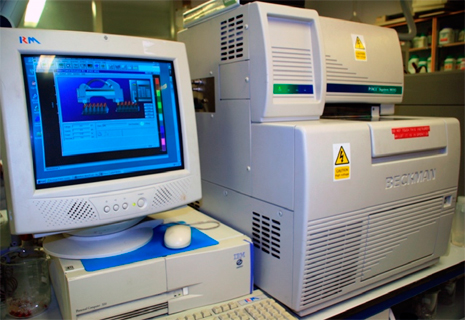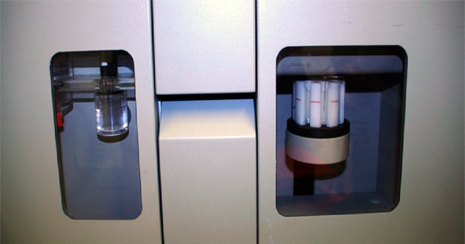Capillary Electrophoresis - CE
Introduction
Capillary electrophoresis is a very sensitive analytical technique. Sample components are separated within a fused silica capillary using one of several modes of electrophoresis.
Injection of the analyte is accomplished using either, pressure, vacuum or electrokinetic’s. Once injected, the sample components move differentially through the capillary under the influence of a high voltage. The separated components then pass through an optical window where a multi-wavelength photodiode array detector measures absorbance and transmits the signal to a computer. A major advantage of the technique is the very low sample consumption, typical injection volumes being between 5 and 10 nanolitres.

Applications
The technique can be used to separate and quantify many different types of sample such as peptides, proteins, nucleic acids, inorganic anions and pharmaceutical drug compounds. Another application is in the determination of chiral mixtures.

Instrumentation
- Beckman PACE Capillary Electrophoresis Instrumentation
- Multi-vial autosampler
- Pressure, vacuum or electrokinetic injection
- Fused silica capillary within temperature controlled cartridge
- -30 to +30 kV programmable power supply
- 256 element photodiode array detector
If the service you require is not listed on this web site, please contact us, we will be happy to help you.
SEM Pricing
| Prices dependant on complexity of analysis. Contact us for further details |
Other spectroscopy techniques available:
- Raman Spectroscopy
- UV-VIS spectroscopy
- Luminescence